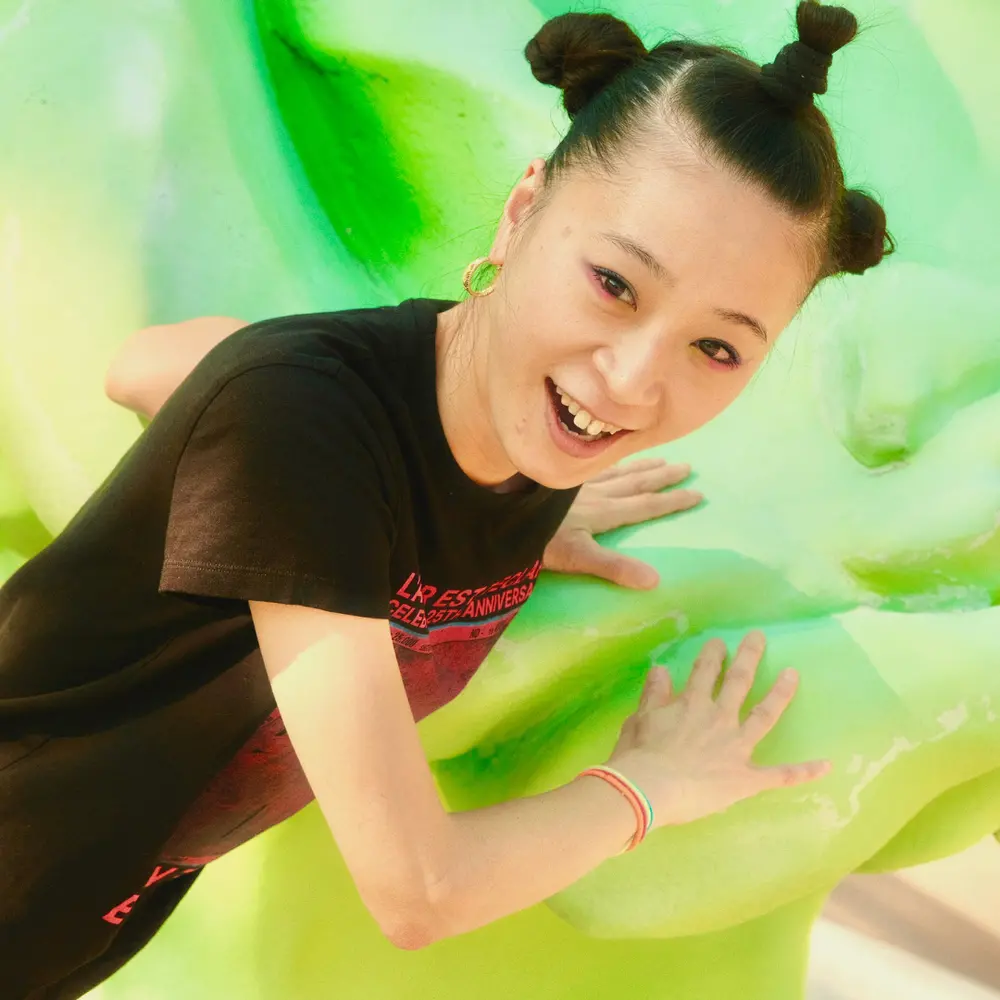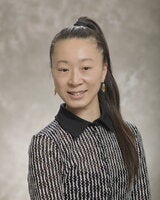
Dr. Yumi Iwadate is a postdoctoral fellow in the Slauch Lab in the Department of Microbiology and serves as one of two postdoctoral advisors for the Microbial Early-Career Researchers Association (MicroERA). She is featured in this month’s Microbial Systems Initiative researcher spotlight as a lead-in to introductions of the MicroERA’s executive board in next month’s newsletter.
Tell us a bit about your research.
My graduate research at Tokyo Metropolitan University was focused on bacterial stress tolerance mechanisms. Using a unique resource, engineered Escherichia coli strains with a reduced genome as screening material, I found several novel survival mechanisms at stationary phase. In 2018, I joined the Slauch lab and started to study Salmonella pathogenesis focusing on an uncharacterized gene (ytfL), which the Slauch lab previously identified as an important gene for virulence. My work revealed that ytfL is responsible for divalent polyamine cadaverine and putrescine efflux. By clarifying the function of an uncharacterized gene responsible for virulence, we elucidated importance of polyamine efflux in Salmonella pathogenesis. Currently, my work focuses on the relationship between polyamines and magnesium to understand how polyamine efflux increases virulence, which is one of most important metals for virulence of Salmonella.
Do you have a personal story to share or path that led to your interest in this area of study?
I have been curious about science since my childhood. I always asked many questions about physics and meteorology in everyday life. Often, I would wonder to myself: “What if the answer is not correct?” or “How can we be so sure about it?” I also have a passion for observing insects, animals, and plants, and started to study biology as an undergraduate. I was impressed by how precisely and sophisticatedly cells function and fascinated by how textbooks have been so often rewritten when big discoveries are made. These experiences influenced my motivation to discover novel mechanisms for cellular functions. At first, I didn’t intentionally choose to focus on microbes. However, after I realized that microbes have such diverse ways of living and that each microbe requires its own multilayered and complicated mechanisms for survival, I have been fascinated by microbes. This pulled me to study how intracellular pathogenic bacteria grow and survive within host cells, when the bacteria are exposed to various stressors.
How does being part of the Microbial Early-Career Researcher community impact you?
I chose to become involved in MicroERA to meet people who study microbes in diverse fields. I believe that having fellows with similar interests or that can inspire each other makes a scientific life more joyful and makes their science more polished. I also believe that postdocs can act as a bridge between graduate students and early-career faculty. Learning about how new faculty transition from postdoc roles has helped me to visualize my future self as an independent young investigator and prepare for future opportunities. Working with MicroERA has been a good opportunity to learn how to lead and work together with people from diverse positions and scientific fields in an efficient way.
Can you talk about the impact the COVID pandemic has had on your work?
The COVID pandemic reminded us of the threat of infectious diseases and asymptomatic infections contribute to the rapid spread of COVID. This has helped me to critically evaluate my work with Salmonella. Salmonella infection can also present without symptoms, and we still do not understand how Salmonella hides within the hosts. Work on Salmonella is still vital to our understanding of pathogenesis.
There was a time when we had to come to a lab in shifts. Because we were not able to work as long as we wanted, we found ways to become more efficient in designing and planning projects. Because of the COVID pandemic, Zoom meetings replaced all the in-person meetings, which made it difficult to network and meet new fellows. Now, half of my meetings are turning back to in-person or a hybrid of in-person and virtual meetings, but I still feel something is missing in socializing and networking. As restrictions diminish, MicroERA is beginning to provide more opportunities to networking for those who feel the same as me!!
What are your plans for the future?
I hope to have my own laboratory one day and discover novel and exciting phenomena with my fellows and students. I think mentoring students is the most difficult and important task as a new investigator. Every student has different strong and weak points. I would like to be a mentor who focuses on developing each student's strengths. Dr. James Slauch has been giving me opportunities to practice mentoring students and there have been so many struggles; but overall, working with students brings me a lot of joy. I believe that my philosophies and techniques I have learned from my mentors will help me raise the next generation of scientists in the future!
